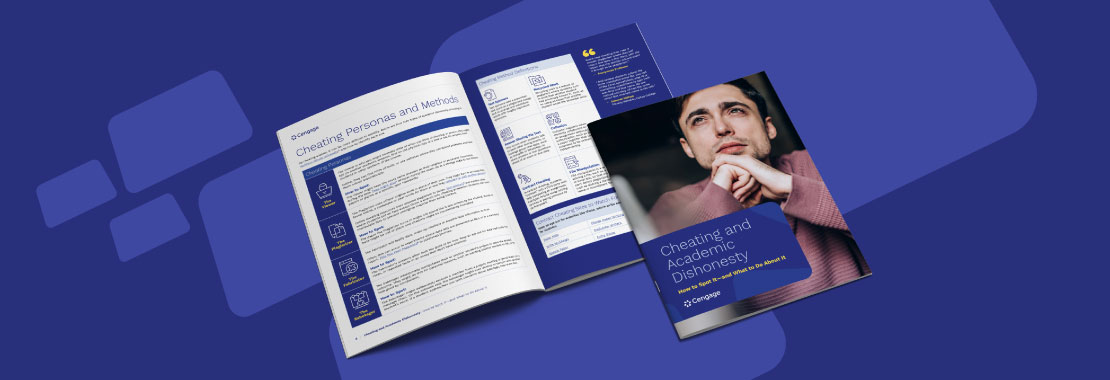Bailey Hull is a writer at Cengage. She’s passionate about equitable education, cozy soups and improv comedy.
Cheating in higher education isn’t anything new. But the rapid increase of digital technology, along with the pivot to online courses during the COVID-19 pandemic, has created new ways of cheating—and made it easier for students to do so.
According to a report from NPR, the University of Georgia saw cheating increase from 228 cases to 600 cases from 2019 to 2020, while The Ohio State University reported a 50% increase in cheating cases during the same time.
Cheating is common—but doesn’t have to be inevitable. In the Cheating and Academic Dishonesty eBook, you’ll learn strategies for:
- Understanding why students cheat
- Identifying different techniques for cheating
- Confronting a cheating student with empathy
- Preventing cheating before it happens
You’ll also hear from students who have cheated in the past, as well as instructors who have developed ways of reducing cheating in their own classrooms.
Download the Cheating and Academic Dishonesty eBook to learn more about how to stop cheating in your course.

